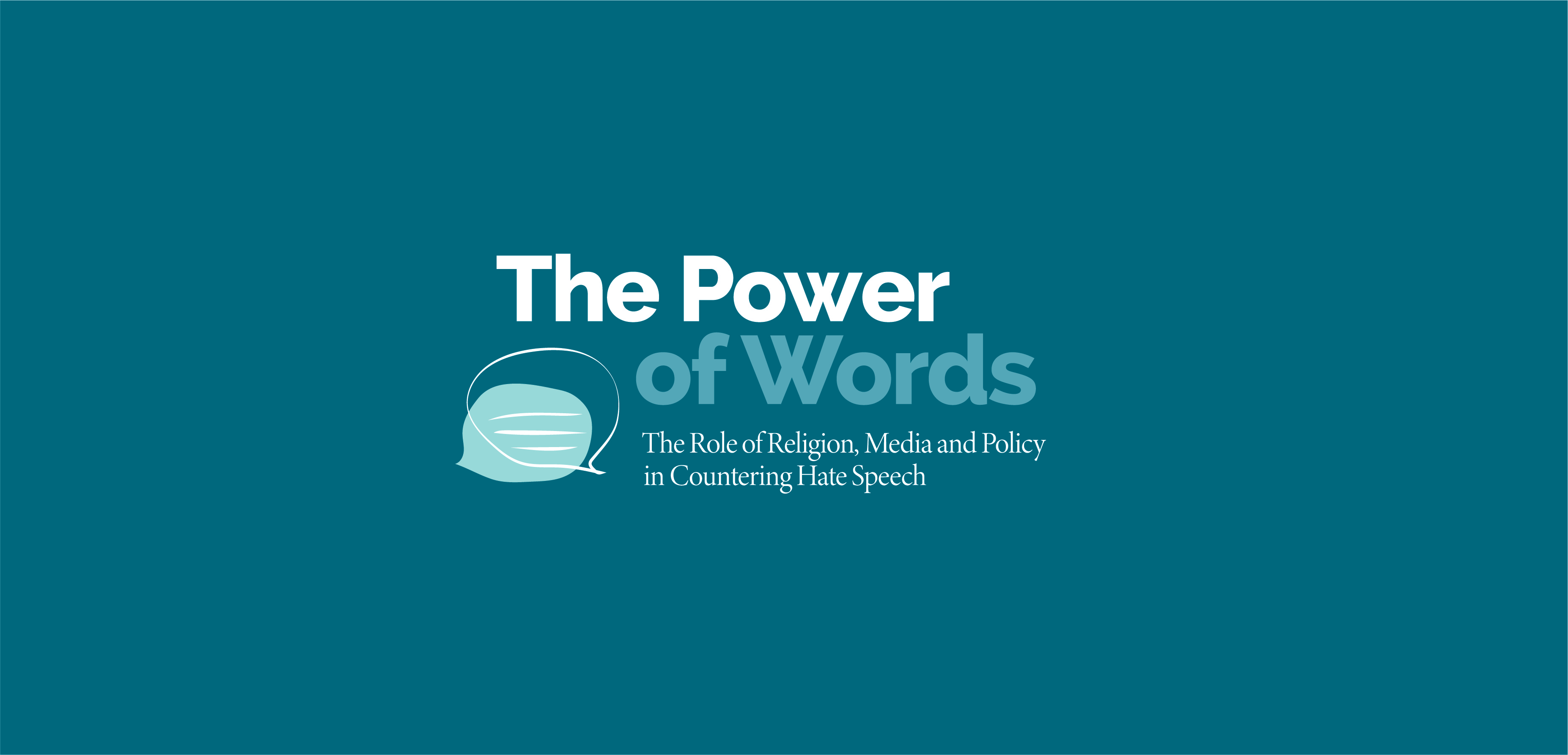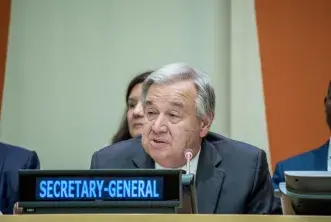The Power of Words: The Role of Religion, Media and Policy in Countering Hate Speech

More than 200 religious leaders, policymakers, and media experts came to Vienna last month to discuss hate speech and how we as the international community can work alongside our friends in media, government, and religious communities to fight hate speech. Our conference, The Power of Words: The Role of Religion, Media and Policy in Countering Hate Speech resulted in a series of recommendations that will guide our programmes throughout 2020, and will serve as a guideline for international organizations, faith-based organizations, policymakers and religious leaders.
In Promoting collaboration and international networking, we should:
- Encourage religious leaders and media to partner in countering hate speech;
- Document and share best practices including historical accounts of efforts and initiatives in countering hate speech;
- Design programmes for youth that promote common values in collaboration with the United Nations;
- Establish an interfaith social media presence to ensure religiously diverse role models;
- Launch an award programme to encourage organisations and individuals who work against hate speech;
Build capacity for identifying and countering hate speech through:
- Trainings for Religious Leaders and journalists on responding to hate speech on social media;
- Social media training for young people to empower them to share positive messages and tackle hate speech;
- Dialogue practitioners, religious leaders and faith-based organizations should:
- Advocate for rules, regulations and legal measures that prevent discrimination against the OSCE’s nine identified vulnerable groups and to ensure equal citizenship for all, regardless of their faith;
- Reach out to decision makers on policy level and encourage and enable policymakers to adopt relevant laws to counter hate speech and legislation to ensure balance between freedom of expression and hate speech;
- Support governments in producing guidelines for curricula on common citizenship values and ethics;
And create knowledge and increase connectivity through:
- Researching, documenting and monitoring statistics on hate speech incidents;
- Mapping existing initiatives that counter hate speech on international and regional level to maximise efforts and resources;
- Developing a code of ethics for journalists and social media personalities to prevent/counter hate speech;
- Implementing reflective learning practices in formal and non-formal education;
- And creating a platform and global institution for exchanging ideas on moderation and dialogue and work together to define hate speech;
View the conference photos here
While there is no exact legal definition of “hate speech”, it is generally defined by the United Nations as, "any kind of communication in speech, writing or behaviour, that attacks or uses pejorative or discriminatory language with reference to a person or a group on the basis of who they are, in other words, based on their religion, ethnicity, nationality, race, colour, descent, gender or other identity factor." When left unaddressed it can lead to violence or hate crimes against marginalised groups. While some statements may not immediately incite violence, they can spread seeds of intolerance and anger that lead to legitimising acts of hate.
For acts of incitement to result in violence, the following elements need to be present: a context conducive to violence, an influential speaker, a speech act that is widely disseminated, a receptive audience and a target (typically marginalised groups).
An act constitutes incitement to violence when there is intent on the part of the speaker to advocate or cause violence. There also needs to be a likelihood that the act may result in violence. Therefore, while all incitement to discrimination, hostility or violence is hate speech, not all hate speech constitutes incitement.
Freedom of expression is protected under international law, with clear rights outlined in Article 19 of the Universal Declaration of Human Rights (UDHR) and the International Covenant on Civil and Political Rights (ICCPR).
However, the international community has also agreed to certain limitations – such as on speech which advocates “national, racial or religious hatred” and “constitutes incitement to discrimination, hostility or violence.” Therefore, it is extremely important for governments to establish sound legal frameworks on hate speech which hold perpetrators accountable, uphold human dignity, protect marginalised groups, while still balancing the right to freedom of expression.
Between 2007-2019, the Pew Research Center reported a significant increase in social hostilities involving religion – including violence and harassment by private individuals, organizations or groups.
This increase has been particularly clear in Europe and the Middle East-North Africa (MENA) region. In 2007, Pew documented reports from six countries in Europe with incidents of “assault on individuals for religious expression that was considered violent or threatening”. Ten years later, that number had risen to 25 countries (out of a total of 45 countries in Europe). Reported incidents included attacks and slurs against Jewish and Muslim communities.
During this same time period, MENA experienced higher levels of official harassment of religious groups compared with other regions around the world. This category measures types of harassment ranging from violence and intimidation to verbal denunciations of religious groups and formal bans on certain groups.
Religious leaders are instrumental in combatting hate speech and discrimination, particularly since these actions undermine the values of religious diversity and pluralism. Unfortunately, religion has sometimes been misused to justify hostility and incitement to violence. It is vital that religious leaders from all faiths show leadership and set a strong example for their followers.
Because religious leaders and organizations are actively engaged with local communities, they are well-positioned to serve as early warning and response (EWER) mechanisms and alert authorities to the escalation of intercommunal tensions. More efforts need to be made to involved religious leaders in EWER structures and to work with government officials on a coordinated strategic response.
While government authorities have the primary responsibility to prevent incitement and protect their people from atrocity crimes, it is up to everyone to stop hate speech and the violence it enables and encourages.
There are many ways to counter and prevent hate speech. These include:
- Raising awareness through community-held trainings or educating friends and family on the dangers of discrimination and intolerance
- Reporting social media posts which spread rumours or misinformation
- Boosting positive messages of peace and tolerance on social media and online platforms
- Supporting individuals or groups who are targeted by hate speech and encouraging policymakers to take action against discriminatory language or policies
- Hosting workshops on conflict sensitive journalism in order to help journalists develop the ethical capacities to identify sources of conflict, and to report news fairly and accurately
- Forming early warning and early response committees at the national and local levels to monitor hate speech and other forms of incitement to violence


